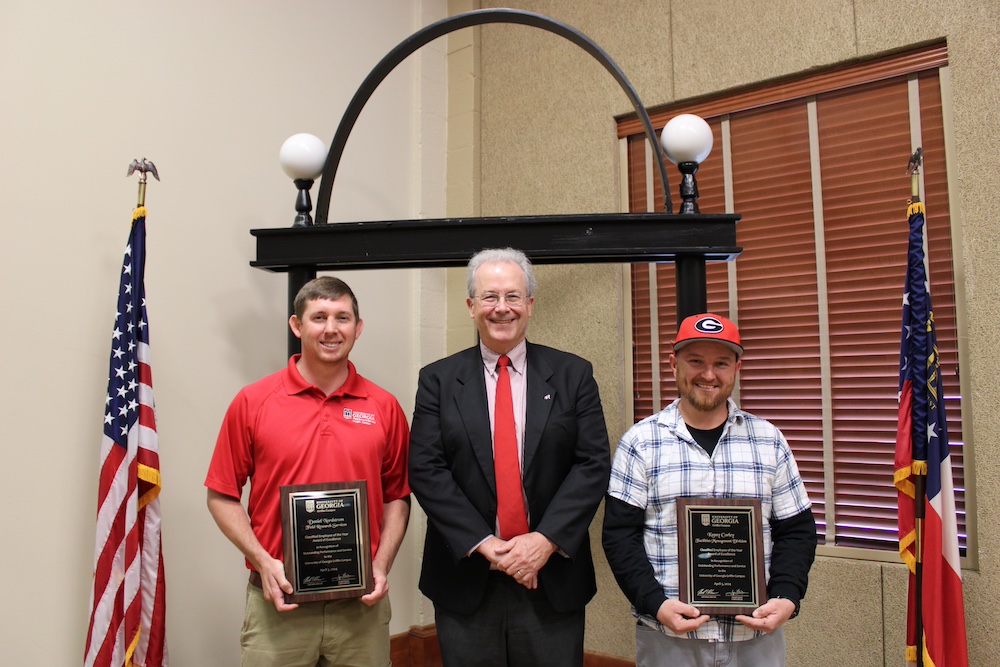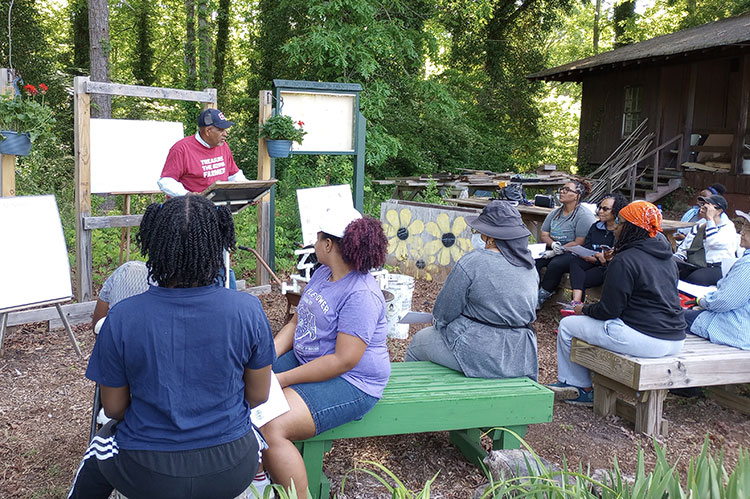By Sharon Omahen
University of Georgia
A $105,000 Occupational Safety and Health Administration grant will help University of Georgia faculty members accomplish what they've been trying to do on a shoestring budget: train the state's Hispanic landscape workers.
OSHA's Susan Harwood Training Grants focus on improving workers' on-the-job safety records. Plant pathologist Alfredo Martinez serves as the project director for UGA.
The project is aimed at reducing equipment- and driving-related injuries and the misuse of pesticides and unnecessary exposure to them.
75 percent of the work force
"Of the 65,000 workers in the state's green industry, 75 percent are Hispanic," Martinez said. "As three-fourths of the work force, Hispanics are the backbone of this industry."
The turf, ornamental and landscape companies that make up Georgia's green industry are among the fastest-growing in the state.
And the trainings don't just help those companies and their workers. It's important to everyone around them that these workers are trained to work safely, Martinez said.
"Every day," he said, "they're mixing chemicals and using heavy equipment and tools with rather limited training."
Business owners are eager to have their Hispanic workers trained, he said. The lower insurance premiums and other benefits of reducing accidents are easy for them to see.
Martinez, horticulturist Marco Fonseca and other UGA colleagues have trained Hispanic workers for years through programs in the UGA College of Agricultural and Environmental Sciences.
Hispanic Specialists Group
Two years ago, they formed Georgia's Hispanic Specialists Group to unify their efforts.
Jorge Atiles, an extension housing specialist with the UGA College of Family and Consumer Sciences, helped with the grant process. Martinez, Fonseca and Atiles have both professional and personal reasons to see the program succeed.
They work closely with the green industry in their UGA programs, and they're all Hispanic. Martinez is from Mexico, Fonseca Honduras and Atiles the Dominican Republic.
"The Hispanic work force in Georgia has grown 300 percent over the past decade," Fonseca said. "They're a very important labor force to agribusinesses in the state. And the UGA Extension Service is in the position to deliver training to them across the state where it is desperately needed."
In the past, the group trained Hispanic workers primarily on proper pesticide handling. With the grant, Martinez sees more possibilities.
Bilingual training materials
"We plan to develop more in-depth trainings that include manuals in both Spanish and English," he said.
The HSG specialists plan to train both the Hispanic workers and their managers. "We've developed a training for managers that focuses on understanding cultural differences," Fonseca said. "These things affect production and safety."
Over the past two years, the group has reached more than 500 Hispanic workers.
"The workers have learned to trust us, and they're no longer afraid to approach us," Martinez said. "I get four to six calls a week from Hispanics I have met who have questions and need more information."
Of the Hispanic workers who have come to his trainings, Martinez said, 75 percent are Mexican. The rest are from Central or South America.
Workers are young and productive
"From class surveys, we've seen that some of these Hispanic workers have technical school or college degrees," Martinez said. "Most are young, single and in the prime of their productivity. They can easily work 14 hour days at strong, labor-intensive work."
Most say they're in the United States to work so they can send money back home to their families. Their goal is to return home.
"Regardless of why they're here, they're here and working in a vital industry, and they need to be trained," he said.
Fonseca, who began training Hispanic landscape and greenhouse workers as a Cherokee County extension agent, said the training needs are great.
"The poultry industry in the state has the need, too," he said. "The majority of their workers are now Hispanic."






